- Strona główna
- News
- Report from conference on Independence of Lawyers
Report from conference on Independence of Lawyers
An online event on current issues of independence of lawyers took place on May 12, 2021. It was a common initiative of the European Association of Lawyers (AEA-EAL), the Polish National Bar of Attorneys-at-law, and the Warsaw Bar of Attorneys-at-law.
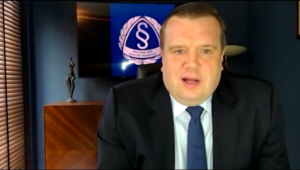 During the opening speech Włodzimierz Chróścik, President of the Polish National Bar of Attorneys-at-law noted that independence is a core value common for all lawyers, regardless of their jurisdiction and legal culture and free lawyers are indispensable for a democratic society.
During the opening speech Włodzimierz Chróścik, President of the Polish National Bar of Attorneys-at-law noted that independence is a core value common for all lawyers, regardless of their jurisdiction and legal culture and free lawyers are indispensable for a democratic society. 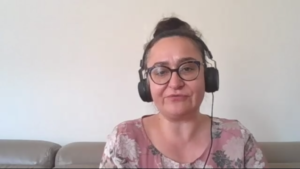 Monika Całkiewicz, Dean of the Warsaw Bar of Attorneys-at-law said that one of the crucial conditions for lawyers’ independence is a free and self-governing bar association. Ara Zohrabyan, Chairman of the Armenian Bar Association, spoke on guarantees for advocates in his country. Advocates’ independence is guaranteed in the Armenian constitution and in other legal acts, however, there is a problem of „inequality of arms”. The state has all
Monika Całkiewicz, Dean of the Warsaw Bar of Attorneys-at-law said that one of the crucial conditions for lawyers’ independence is a free and self-governing bar association. Ara Zohrabyan, Chairman of the Armenian Bar Association, spoke on guarantees for advocates in his country. Advocates’ independence is guaranteed in the Armenian constitution and in other legal acts, however, there is a problem of „inequality of arms”. The state has all 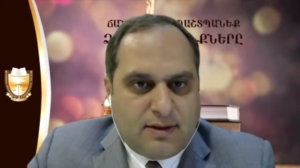 powers, police, prosecutors, and secret services. The lawyer has only his knowledge, know-how, and procedural safeguards. Therefore, it is crucial that this single advocate has a strong Bar Association, which can defend him. Ara described also the main guarantees for lawyers related to freedom of speech, a search of his/ her property, or seizure lawyer’s documents. Professor Liudmila Uliashyna, Head of the Committee Program “Law, Political Science, and Economics”, Centre for Constitutionalism and Human Rights of the European Humanity University, presented exhaustive information on the formal and practical persecutions of lawyers and the situation of the legal profession in Belarus. She noted that the situation in Belarus is exceptional. Lawyers, human rights defenders, and all other legal practitioners are acting in de facto martial law state.
powers, police, prosecutors, and secret services. The lawyer has only his knowledge, know-how, and procedural safeguards. Therefore, it is crucial that this single advocate has a strong Bar Association, which can defend him. Ara described also the main guarantees for lawyers related to freedom of speech, a search of his/ her property, or seizure lawyer’s documents. Professor Liudmila Uliashyna, Head of the Committee Program “Law, Political Science, and Economics”, Centre for Constitutionalism and Human Rights of the European Humanity University, presented exhaustive information on the formal and practical persecutions of lawyers and the situation of the legal profession in Belarus. She noted that the situation in Belarus is exceptional. Lawyers, human rights defenders, and all other legal practitioners are acting in de facto martial law state. 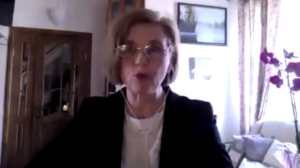 Firstly, professor Uliashyna described how the legal profession in Belarus was systematically harassed, legally limited in its powers, and persecuted for regular lawyers’ work. Secondly, she talked about the main tool used for silencing independent lawyers by the Ministry of Justice – the possibility of revoking a lawyer’s license for professional practice. Thirdly, she spoke about criminal means used against lawyers by the state: arrests and detentions, false accusations, persecution for public information about cases, open violations of legal guarantees, etc. It has to be underlined that people’s right to be represented by a lawyer was almost totally eliminated in administrative cases (most fines are imposed in that kind of proceedings) and recent amendments to the Law on Advocacy eliminated individual and private law offices. Liudmila Uliashyna called for international solidarity and to undertake interventions in every case of violation of lawyers’ rights in Belarus.
Firstly, professor Uliashyna described how the legal profession in Belarus was systematically harassed, legally limited in its powers, and persecuted for regular lawyers’ work. Secondly, she talked about the main tool used for silencing independent lawyers by the Ministry of Justice – the possibility of revoking a lawyer’s license for professional practice. Thirdly, she spoke about criminal means used against lawyers by the state: arrests and detentions, false accusations, persecution for public information about cases, open violations of legal guarantees, etc. It has to be underlined that people’s right to be represented by a lawyer was almost totally eliminated in administrative cases (most fines are imposed in that kind of proceedings) and recent amendments to the Law on Advocacy eliminated individual and private law offices. Liudmila Uliashyna called for international solidarity and to undertake interventions in every case of violation of lawyers’ rights in Belarus. 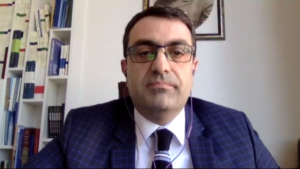 David Asatiani, President of the Georgian Bar Association and AEA-EAL Vice-President, gave a Georgian perspective on the way ahead for the progress of the legal profession. He focused on elements that may make the legal profession and the whole justice system stronger. He underlined that the key factor should be the profession’s unity towards the state. Every state, also democratic, has a tendency to eliminate independent institutions, which may watch its actions. Therefore, a strong Bar Association, independent organizationally and financially is a crucial condition for lawyers’ independence. In this context, it is very important to monitor constantly every activity of state institutions that may lead to limitations on citizens’ rights and legal guarantees for lawyers. Another important issue is protecting and building social trust in the profession. Therefore, entry conditions for future lawyers should be as high as possible to select people with the best moral and intellectual standards. To deal with judges and prosecutors, Georgian Bar Association, the Supreme Court, and Prosecutor General created a Consultative Council to discuss issues of common interest and to undertake common efforts to improve the Georgian justice system. David underlined also the significance of international cooperation between Bars and individual lawyers.
David Asatiani, President of the Georgian Bar Association and AEA-EAL Vice-President, gave a Georgian perspective on the way ahead for the progress of the legal profession. He focused on elements that may make the legal profession and the whole justice system stronger. He underlined that the key factor should be the profession’s unity towards the state. Every state, also democratic, has a tendency to eliminate independent institutions, which may watch its actions. Therefore, a strong Bar Association, independent organizationally and financially is a crucial condition for lawyers’ independence. In this context, it is very important to monitor constantly every activity of state institutions that may lead to limitations on citizens’ rights and legal guarantees for lawyers. Another important issue is protecting and building social trust in the profession. Therefore, entry conditions for future lawyers should be as high as possible to select people with the best moral and intellectual standards. To deal with judges and prosecutors, Georgian Bar Association, the Supreme Court, and Prosecutor General created a Consultative Council to discuss issues of common interest and to undertake common efforts to improve the Georgian justice system. David underlined also the significance of international cooperation between Bars and individual lawyers. 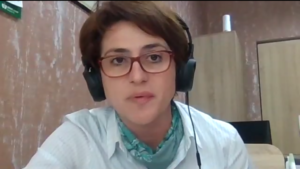 Angela Popil, a member of the Board of the Moldova Bar Association, spoke on threats and challenges for Moldovan lawyers during the coronavirus pandemic period. She also described the experiences of Moldovan lawyers in recent times. Since 2002 there are legal guarantees for the independence of advocates and the Bar and this year’s amendments strengthened the independence of the profession. Also, in this country state authorities tried to persecute lawyers for their professional activity (cases were successfully resolved in 2019). The main problem is the identification of lawyers with their clients, which is the case not only in relation to the public but – sometimes – to authorities. The pandemic period came with several restrictions and limitations imposed by the state like problems with access to imprisoned and arrested clients, the closing of courts, and many further measures well-known in other countries. Another issue is a lack of continuing professional education and no control of access to the profession (i.e., examination) for former judges, who are entitled to become lawyers without any entry conditions. The bright side of the pandemic period is the faster digitalization of the Bar and the Administration of Justice.
Angela Popil, a member of the Board of the Moldova Bar Association, spoke on threats and challenges for Moldovan lawyers during the coronavirus pandemic period. She also described the experiences of Moldovan lawyers in recent times. Since 2002 there are legal guarantees for the independence of advocates and the Bar and this year’s amendments strengthened the independence of the profession. Also, in this country state authorities tried to persecute lawyers for their professional activity (cases were successfully resolved in 2019). The main problem is the identification of lawyers with their clients, which is the case not only in relation to the public but – sometimes – to authorities. The pandemic period came with several restrictions and limitations imposed by the state like problems with access to imprisoned and arrested clients, the closing of courts, and many further measures well-known in other countries. Another issue is a lack of continuing professional education and no control of access to the profession (i.e., examination) for former judges, who are entitled to become lawyers without any entry conditions. The bright side of the pandemic period is the faster digitalization of the Bar and the Administration of Justice. 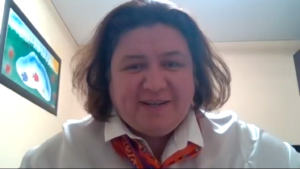 Elena Avakyan, Council Member of the Russian Federal Bar Association intervened on digitalization as a key factor for maintaining lawyers’ independence. In her opinion, Russia reflects all problems with independence that were raised in previous presentations, however, the situation is not as bad as in Belarus. Like in Moldova, there is no lawyers’ monopoly for representation in courts, except in criminal cases. Lawyers may work as employees, which is a relatively new possibility for Russian advocates. What is typical of Russian Bar’s structure is that 85 regional Bars are independent associations, and the Federal Bar is not a supervisory body but rather a creator of common standards. A common problem for the Justice system is that lots of judges have prosecutors’ or public service backgrounds and few of them know lawyer’s practice. Therefore, judicial judgments and decisions are very strict for accused people. Lawyers often face problems with access to courts, state institutions, and prosecutor’s offices. We see digitalization as one of the ways to improve the situation and to make lawyers’ position better towards other actors of justice. In 2020 all Russian bars introduced a unified digital system for lawyers, including a single register of advocates connected with regional databases, videoconferencing, exchange of official documents with state catalogs and archives, a system of assignment of cases, reimbursement of fees, online continuing legal education structure and electronic law office – a tool for every lawyer, etc. The system is designed to deal with various electronic tools used by regional bars and law offices. For the future, we are working on a single financial account for each lawyer to process online income and expenditures. We are also preparing a system for the electronic bar examination.
Elena Avakyan, Council Member of the Russian Federal Bar Association intervened on digitalization as a key factor for maintaining lawyers’ independence. In her opinion, Russia reflects all problems with independence that were raised in previous presentations, however, the situation is not as bad as in Belarus. Like in Moldova, there is no lawyers’ monopoly for representation in courts, except in criminal cases. Lawyers may work as employees, which is a relatively new possibility for Russian advocates. What is typical of Russian Bar’s structure is that 85 regional Bars are independent associations, and the Federal Bar is not a supervisory body but rather a creator of common standards. A common problem for the Justice system is that lots of judges have prosecutors’ or public service backgrounds and few of them know lawyer’s practice. Therefore, judicial judgments and decisions are very strict for accused people. Lawyers often face problems with access to courts, state institutions, and prosecutor’s offices. We see digitalization as one of the ways to improve the situation and to make lawyers’ position better towards other actors of justice. In 2020 all Russian bars introduced a unified digital system for lawyers, including a single register of advocates connected with regional databases, videoconferencing, exchange of official documents with state catalogs and archives, a system of assignment of cases, reimbursement of fees, online continuing legal education structure and electronic law office – a tool for every lawyer, etc. The system is designed to deal with various electronic tools used by regional bars and law offices. For the future, we are working on a single financial account for each lawyer to process online income and expenditures. We are also preparing a system for the electronic bar examination. 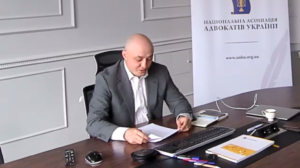 Dr. Vitalii Vlasiuk, Head of the International Law Committee of the Ukrainian National Bar Association and advisor to the Prime Minister of Ukraine, presented the most important challenges for lawyers during the past year. The most important feature was the Covid-19 pandemic. Some limitations were imposed – prohibition of involvement of the public and media in court hearings, many courts did not accept Covid-19 infection as a reason for lawyers’ non-participation in hearings. The Bar undertook several initiatives to deal with the issue – proposal of legislative amendments, talks on covering lawyers with priority lines towards vaccinations, etc. Similar to our Russian colleagues, we also commenced works on digitalization, like single lawyers’ registers, e-cabinets for lawyers, and online training. Some threats have arisen from the actions of the Anti-corruption Agency, which demands from lawyers – members of the Qualification and Disciplinary Committee of the Bar – submission of electronic information on financial income, which is required from all state officials. The Bar refused to argue that lawyers performing their duties in Bar’s organs are not state officials but members of independent self-government. Such action of the Agency is widely seen as an attempt to limit Bar’s independence.
Dr. Vitalii Vlasiuk, Head of the International Law Committee of the Ukrainian National Bar Association and advisor to the Prime Minister of Ukraine, presented the most important challenges for lawyers during the past year. The most important feature was the Covid-19 pandemic. Some limitations were imposed – prohibition of involvement of the public and media in court hearings, many courts did not accept Covid-19 infection as a reason for lawyers’ non-participation in hearings. The Bar undertook several initiatives to deal with the issue – proposal of legislative amendments, talks on covering lawyers with priority lines towards vaccinations, etc. Similar to our Russian colleagues, we also commenced works on digitalization, like single lawyers’ registers, e-cabinets for lawyers, and online training. Some threats have arisen from the actions of the Anti-corruption Agency, which demands from lawyers – members of the Qualification and Disciplinary Committee of the Bar – submission of electronic information on financial income, which is required from all state officials. The Bar refused to argue that lawyers performing their duties in Bar’s organs are not state officials but members of independent self-government. Such action of the Agency is widely seen as an attempt to limit Bar’s independence. 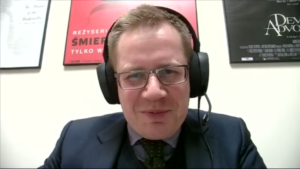 Dr. Mateusz Woliński talked about disciplinary liability and the independence of Polish attorneys-at-law. He noted that there are several dimensions of a lawyer’s liability – legal (civil, administrative, criminal, or professional), social, economic, towards clients and colleagues, etc. He underlined that professional liability is crucial for securing independence. It is the cause why disciplinary proceedings should be conducted by a body independent from the state – in the Polish case within the Bar. Mateusz described in detail existing provisions of liability and their practical functioning. Regulations are set both in-state acts of Parliament and in Bar’s bylaws in the Code of Conduct of attorney-at-law. Independence described in Polish documents is seen as /1/ independence from the state, /2/ independence from the client or any third party, and /3/ independence from the personal interest of a lawyer. Nowadays we can see a tendency to appropriate the sphere of self -governments of all kinds (local or professional) by the state as a sign of lack of trust to independent bodies. Among others, we can observe trials to influence disciplinary proceedings by the Minister of Justice despite existing state large powers in this field. The event was concluded by
Dr. Mateusz Woliński talked about disciplinary liability and the independence of Polish attorneys-at-law. He noted that there are several dimensions of a lawyer’s liability – legal (civil, administrative, criminal, or professional), social, economic, towards clients and colleagues, etc. He underlined that professional liability is crucial for securing independence. It is the cause why disciplinary proceedings should be conducted by a body independent from the state – in the Polish case within the Bar. Mateusz described in detail existing provisions of liability and their practical functioning. Regulations are set both in-state acts of Parliament and in Bar’s bylaws in the Code of Conduct of attorney-at-law. Independence described in Polish documents is seen as /1/ independence from the state, /2/ independence from the client or any third party, and /3/ independence from the personal interest of a lawyer. Nowadays we can see a tendency to appropriate the sphere of self -governments of all kinds (local or professional) by the state as a sign of lack of trust to independent bodies. Among others, we can observe trials to influence disciplinary proceedings by the Minister of Justice despite existing state large powers in this field. The event was concluded by 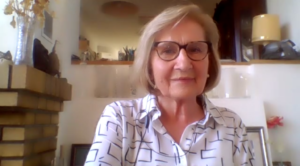 Maria Ślązak, AEA-EAL President, and
Maria Ślązak, AEA-EAL President, and 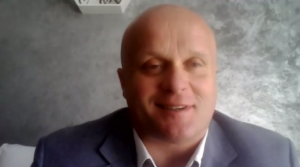 Michał Korwek, Vice-President of the Polish National Bar of Attorneys-at-law. Maria expressed her gratitude to all speakers for providing information and possible remedies. The independence of lawyers has a crucial value for society and for justice. She indicated key factors of independence raised by speakers – independence itself, preserving professional secrecy, and avoidance of conflict of interests. Then freedom of association and establishing strong self-governments – Bars, clear entry requirements, independence from state organs (except courts) disciplinary proceedings, and highest possible standards of knowledge and qualifications including continuing legal education. After all – freedom of choosing lawyers by clients. All those factors can create a strong, independent legal profession playing a key role in providing justice to citizens. Maria said also that it is a common problem for all jurisdictions that a lawyer is often identified with his client. Another one is a limitation of freedom of speech that occurs in many countries, also those seen as “old democracies”. Three good remedies were called – a forum for the exchange of opinions between lawyers, judges, and prosecutors, a committee for constant monitoring of state activities, and a rapid group to react immediately to infringement of lawyers’ rights. Maria pointed out also the significance of international cooperation of lawyers and the creation of a positive image of the profession towards the public. Finally, she informed on the works of the Council of Europe on drafting the Convention on a profession of a lawyer. Michał Korwek thanked Maria for her excellent summary and to all speakers, participants, and organizers. He said that independence is not a general matter far from us but touches each individual lawyer in his daily work.
Michał Korwek, Vice-President of the Polish National Bar of Attorneys-at-law. Maria expressed her gratitude to all speakers for providing information and possible remedies. The independence of lawyers has a crucial value for society and for justice. She indicated key factors of independence raised by speakers – independence itself, preserving professional secrecy, and avoidance of conflict of interests. Then freedom of association and establishing strong self-governments – Bars, clear entry requirements, independence from state organs (except courts) disciplinary proceedings, and highest possible standards of knowledge and qualifications including continuing legal education. After all – freedom of choosing lawyers by clients. All those factors can create a strong, independent legal profession playing a key role in providing justice to citizens. Maria said also that it is a common problem for all jurisdictions that a lawyer is often identified with his client. Another one is a limitation of freedom of speech that occurs in many countries, also those seen as “old democracies”. Three good remedies were called – a forum for the exchange of opinions between lawyers, judges, and prosecutors, a committee for constant monitoring of state activities, and a rapid group to react immediately to infringement of lawyers’ rights. Maria pointed out also the significance of international cooperation of lawyers and the creation of a positive image of the profession towards the public. Finally, she informed on the works of the Council of Europe on drafting the Convention on a profession of a lawyer. Michał Korwek thanked Maria for her excellent summary and to all speakers, participants, and organizers. He said that independence is not a general matter far from us but touches each individual lawyer in his daily work.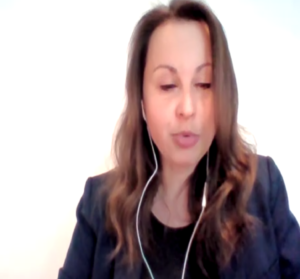
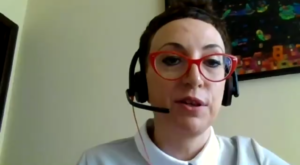
There were two moderators of the conference: Joanna Wisła-Płonka, Chair of the Foreign Affairs Committee of the Polish National Bar of Attorneys-at-law and Chair of the European Lawyers Committee of the Council of Bars and Law Societies of Europe (CCBE), and Magdalena Bartosiewicz, Chair of the Foreign Affairs and Human Rights Committee of the Warsaw Bar of Attorneys-at-law.
AEA-EAL is committed to handling your Personal data in ccompalince with applicable data protection laws, including the General Data Protection Regulation ("GDPR"). If you have any questions, please contact us at privacy@aea-eal.eu. Our privacy policy and cookies policy are available here.
AEA-EAL aisbl - siege social/headquartes: Avenue Louise 235 - 1050 Bruxelles/Brussels - Belgique/Belgium KBO/BCE 0465.302.664
phone: +32 (0)2 467 34 24 e-mail: aea-eal@aea-eal.eu
Copyright 2023 AEA-EAL
